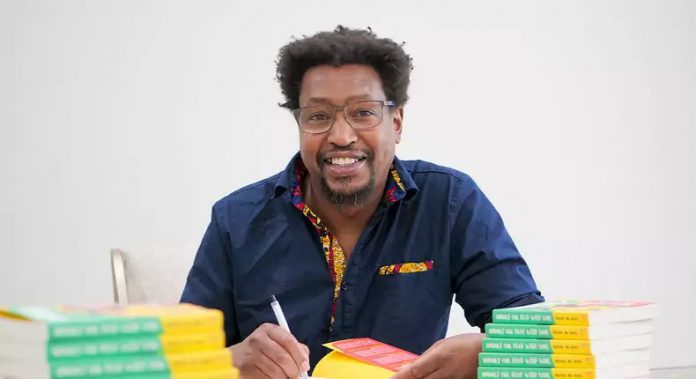In an evocative disclosure that sheds light on the complex personal life of one of Kenya’s literary icons, Professor Mukoma wa Ngugi, son of the revered author Ngũgĩ wa Thiong’o, brings to the fore harrowing accounts of domestic abuse within their family.
In a social media post, Mukoma wa Ngugi opened up about the turbulent relationship between his father and his late mother, Nyambura, Ngũgĩ wa Thiong’o’s first wife, offering a rare glimpse into the private struggles behind the public persona of the internationally acclaimed writer.
According to Mukoma, Ngugi was physically abusive to his late mother something that is hardly spoken about by his father.
“My father Ngugi Wa Thiongo physically abused my late mother. He would beat her up. Some of my earliest memories are of me going to visit her at my grandmother’s where she would seek refuge.
“But with that said, it is the silencing of who she was that gets me,” Mukoma wa Ngugi shares, revealing a deeply personal pain that has lingered through the years.
Nyambura, who passed away in 1996, remains a relatively enigmatic figure, with much of her life story overshadowed by her more famous husband.
Together, they had six children, including Professor Mukoma, who is also an author.
Further complicating the family saga, Ngũgĩ wa Thiong’o’s second marriage to Njeeri, a relationship kindled during his exile in the United States, ended in divorce under circumstances that remain largely under wraps.
Prof Ngugi and Njeeri met in 1989 at the Grand Central Station in New York.
This was 11 years after the writer had fled into exile after the government had jailed him for a year without trial as it cracked down on political messaging in art.
It was at this period Prof Ngugi created works of art that included the famous play ‘Ngaahika Ndeenda’ (Kikuyu for I Will Marry When I Want) which he co-wrote with Ngugi wa Mirii.
Njeeri, a therapist, was in the news in Kenya in 2004 when she was attacked alongside Prof Ngugi and raped.
The dissolution of this union, once perceived as a harmonious pairing, adds another dimension to the narrative of a man whose personal life seems at odds with his public crusades for equity and human rights.












